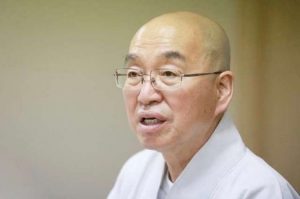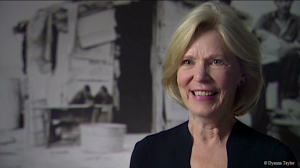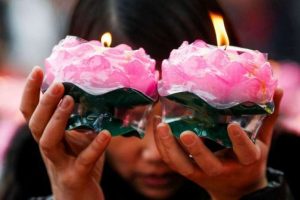
Online meditation support community Awakening at Home recently became an affiliate of Zen Peacemakers International (ZPI), an interfaith network that integrates spiritual practice with compassionate action in the world. Zen Peacemakers International was co-founded by Roshi Bernie Glassman, his wife Roshi Sandra Jishu Holmes, and teachers from Taizan Mazumi Roshi’s White Plum lineage. Roshi Glassman began his Zen studies with Taizan Maezumi Roshi in 1967. After receiving Dharma transmission, he established the Zen Community of New York in 1980 and later the Greyston Mandala, a group of for-profit and non-profit organizations in Yonkers, New York. Greyston Mandala revitalizes this inner city neighborhood by making low-cost housing, jobs, and childcare and other supportive services available to families who live there. The organization runs a bakery that provides employment for people regardless of their past history. The profits from the bakery go toward paying for social services for local residents. It is a brilliant, effective act of compassionate service tied to a business that came directly from the heart of the Zen Community of New York. Greyston Mandala supports people whom society has deemed disposable to become productive members of the community.
What is unique about ZPI is that the service projects support not only the community in Yonkers but provide an expression of compassionate service for those who wish to walk the bodhisattva path. In this model, service is intimately joined with Zen practice. The service originates not from a place of I am going to help you, but from a place of I am you, you are me. This is central to the Greyston Mandala and intrinsic to the style of Buddhism practiced at ZPI. At its core, this practice and service stems from the realization that we are all connected: not there but for the grace of god go I, but there go I, eliminating the distance between ourselves and others.
In order to develop this realization of interbeing in students, Roshi Glassman took the 13th century Zen master Dogen’s three major principles; non-thinking, shikantaza (Jp. just sitting), and butsudo (Jp. the Way of the Buddha), and developed them into the three-tenets practice. The first tenet, non-thinking, becomes not knowing. Not knowing brings us to the same place as a koan: open awareness of things just as they are. The second tenet, shikantaza, becomes bearing witness, a state of non-duality and open awareness in the moment. This practice brings us to a place of non-separation from our life and everything in it, what Thich Nhat Hanh called interbeing. The third tenet, butsudo, becomes the way of the bodhisattva—healing oneself and others through loving action.
One of the retreat forms developed by ZPI to help students break down perceived distance between themselves and others are “plunges.” During plunges, we bear witness in places where great suffering has occurred. There are a number of different plunges or bearing-witness retreats. One form is street retreats. During street retreats, participants live on the street for a week without money or the necessities they are accustomed to having so that they may experience, firsthand, how it feels to need to ask for help, to eat what is given, and to sleep wherever a spot on the street can be found. The participants on these plunges feel what is like to be looked down on by people passing them by. They experience the distance that some people who serve the homeless put between themselves and the people they are serving. This can have a profound effect on the service they offer in the future.
There are other kinds of bearing-witness plunges, such as the yearly meditation retreat at Auschwitz, where millions were murdered during World War Two; plunges at sites in the American West, where indigenous Americans experienced genocide; plunges in Rwanda, where genocide also occurred; and plunges in the Deep South of the US, where American slavery took place. Wherever great suffering has been inflicted, we are invited to bear witness to that suffering. These retreats offer Zen practitioners the opportunity to practice Buddhist principles in real time, to bear witness to suffering in an open-hearted way. This awareness naturally leads to compassionate action.
The Buddha’s First Noble Truth is that suffering is part of the human condition. The Buddha taught that suffering is hardwired into the human condition in the form of greed, hatred, and delusion. There is no discussion of creating utopias in the Buddha’s insight into suffering. Although suffering cannot be eliminated by any social or political system, we can act in ways that alleviate suffering in others wherever we find it simultaneously awakening to our own oneness with all life and working toward eliminating our own personal suffering. We plunge into life just how we find it. And as we serve from the heart, imagined barriers between ourselves and others dissolve.
See more
Awakening at Home
Zen Peacemakers International
Related features from BDG
The Buddha’s Wondrous Teachings
Buddhistdoor View: The Bodhisattva Vows – Endlessly Renewing Resolutions
Manual Labor and the Bodhisattva Vows














